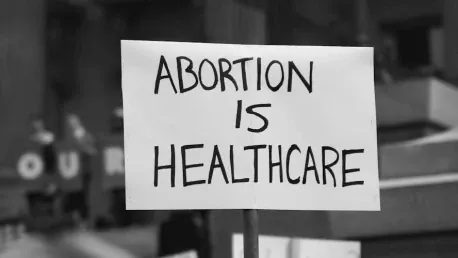The recent proposal by the Department of Public Health (DPH) in Connecticut to amend abortion regulations has ignited a wave of public interest and controversy. These proposed changes aim to expand the range of medical providers authorized to perform abortions, while also altering specific provisions related to conscience objections and post-abortion care for infants born alive. This has led to intense discussions on ethical, legal, and medical fronts, with people from various sectors offering varied perspectives.
Transparency and Legislative Oversight
A central point of contention with the DPH’s proposed amendments is the perceived lack of transparency in how they were introduced and handled. Many critics argue that the regulatory amendments were not adequately publicized or open to sufficient public scrutiny. Adding to this frustration, several significant changes were alleged to have been introduced after the initial public comment period, raising concerns about both transparency and accountability within the regulatory process.
The public hearings on these regulatory changes have revealed significant dissatisfaction among citizens and activists, who have called for much greater legislative deliberation and engagement. They argue that such sweeping changes to essential healthcare policies, particularly those involving abortion, should undergo rigorous legislative processes. This ensures that all viewpoints are thoroughly considered and that the procedures adhere to democratic principles.
The perceived opacity surrounding these amendments has amplified distrust among various stakeholders, including healthcare providers and advocacy groups. They insist that the government must respect democratic principles, ensuring substantial amendments, particularly on sensitive issues like abortion, are transparently discussed with full public engagement and legislative scrutiny.
Conscience Protections for Healthcare Providers
Another highly divisive aspect of the proposed amendments is the removal of language that safeguards healthcare providers’ rights to refuse participation in abortion services based on personal or religious beliefs. This has sparked a heated and contentious debate about the balance between personal freedoms and professional obligations. Opponents of this change argue that it severely infringes on healthcare workers’ conscience rights, forcing them to act against their moral or religious convictions. They assert that such changes could lead to job dissatisfaction and diminished morale within the medical community, ultimately affecting the quality of healthcare services.
On the other hand, supporters of the amendment maintain that federal laws already provide sufficient protection of conscience rights for healthcare providers, rendering state-level protections redundant. They argue that healthcare providers should prioritize patient care and medical necessity over personal beliefs, ensuring that all women have access to safe and legal abortion services without facing unnecessary barriers. This perspective emphasizes the importance of maintaining a healthcare system where patient needs take precedence.
Post-Abortion Care for Infants Born Alive
The proposal to eliminate provisions that mandate medical care for infants born alive after an attempted abortion is another major flashpoint in the debate surrounding the proposed amendments. Critics have labeled this move as morally reprehensible, fearing it could lead to neglect or even instances of infanticide. The ethical concerns dominating this debate center on the belief that every newborn, no matter the circumstances of their birth, deserves proper medical attention and care.
Opponents of this change insist that the removal of this requirement symbolizes a dark moral turn and diminishes the value of infant lives. They argue that it is the duty of the state to ensure that all babies, regardless of the situation, receive appropriate medical interventions. Conversely, proponents of the amendment argue that such provisions are medically inaccurate and mainly serve to fuel anti-abortion rhetoric. They maintain that existing laws and medical guidelines are sufficient to ensure newborns receive the necessary care, suggesting that the removed language was driven more by ideological convictions than medical realities.
Third Trimester Abortion Regulations
Changes to when third-trimester abortions can be performed have also stirred significant controversy. The proposed amendments suggest removing language that limits these procedures to cases where the mother’s life is endangered, and instead applying a broader criterion based on fetal viability. This adjustment aligns more closely with contemporary medical standards, allowing healthcare providers greater discretion in making critical decisions regarding late-term abortions.
Proponents see this change as a necessary modernization of the regulations, ensuring that they reflect the nuanced realities of healthcare and the significance of medical judgment in these complex cases. They argue that such flexibility is crucial for addressing unique situations appropriately and ensuring the best possible outcomes for patients. However, opponents worry that this broader language could lead to an increase in late-term abortions, raising ethical and moral concerns regarding potential misuse or overreach. They argue that even with increased medical discretion, the potential for abuse remains a serious risk, highlighting the need for strict regulatory frameworks to prevent exploitation.
Expansion of Authorized Medical Providers
The Connecticut Department of Public Health’s recent proposal to amend abortion regulations has sparked significant public interest and controversy. These proposed changes aim to broaden the scope of medical providers permitted to perform abortions, potentially allowing advanced practice nurses, nurse-midwives, and physician assistants to undertake these procedures. Additionally, the proposed amendments address provisions related to conscience objections, allowing more healthcare professionals to opt out of performing abortions due to personal beliefs. Another critical aspect of the proposal involves updated guidelines for post-abortion care, specifically for infants born alive during an abortion procedure. The proposed regulations seek to ensure that such infants receive medical care, igniting a firestorm of discussions on ethical, legal, and medical grounds. People from various sectors, including healthcare, law, ethics, and public policy, have expressed diverse opinions, making this a highly debated issue. This multifaceted discussion highlights the complexity of balancing women’s reproductive rights, healthcare access, and ethical considerations in medical practice.









